Creating Cultures of Consent
This book is dedicated to my children, Emmanuel and Lily-Marie.
May you and all of your descendants be agents in the creation of
consent culture. I pray that consent becomes a paradigm in which
you view the world and a gift you give to everyone you interact with.
Creating Cultures of Consent
A Guide for Parents and Educators
Laura McGuire
ROWMAN & LITTLEFIELD
Lanham Boulder New York London
Published by Rowman & Littlefield
An imprint of The Rowman & Littlefield Publishing Group, Inc.
4501 Forbes Boulevard, Suite 200, Lanham, Maryland 20706
www.rowman.com
6 Tinworth Street, London, SE11 5AL, United Kingdom
Copyright 2021 by Laura McGuire
All rights reserved . No part of this book may be reproduced in any form or by any electronic or mechanical means, including information storage and retrieval systems, without written permission from the publisher, except by a reviewer who may quote passages in a review.
British Library Cataloguing in Publication Information Available
Library of Congress Cataloging-in-Publication Data
Names: McGuire, Laura, 1987 author.
Title: Creating cultures of consent : a guide for parents and educators / Laura McGuire.
Description: Lanham : Rowman & Littlefield, [2021] | Includes bibliographical references. | Summary: A blended conversation for bringing consent education to the classroom and home Provided by publisher.
Identifiers: LCCN 2020046483 (print) | LCCN 2020046484 (ebook) | ISBN 9781475850963 (cloth) | ISBN 9781475850970 (epub)
Subjects: LCSH: Sexual consentUnited States. | TeenagersSexual BehaviorUnited States. | Sex instructionUnited States. | RapeUnited StatesPrevention.
Classification: LCC HQ32 .M388 2021 (print) | LCC HQ32 (ebook) | DDC 176/.4dc23
LC record available at https://lccn.loc.gov/2020046483
LC ebook record available at https://lccn.loc.gov/2020046484
 The paper used in this publication meets the minimum requirements of American National Standard for Information SciencesPermanence of Paper for Printed Library Materials, ANSI/NISO Z39.48-1992.
The paper used in this publication meets the minimum requirements of American National Standard for Information SciencesPermanence of Paper for Printed Library Materials, ANSI/NISO Z39.48-1992.
Contents
I often say my students are my greatest teachers. There are always things I havent ever considered or understood the impact of until one of them brings it up; something I strongly encourage them to do.
Through this process, I have been reminded that sometimes the first sex education a child receives comes in the form of being abused or raped. That being undocumented means that accessing health care and police protection is not often a viable or realistic option. That not everyone has the homelife, family, or resources to feel safe and loved in the ways that other children do. Because of this we must be mindful to create education that thinks first of those most in need and whose messages are tailored to every child and teens reality.
I have been humbled by the violence my LGBTQ young people face at home daily, when we live in a time that pretends that this fight is over. By having diverse teachers and outlets for student input and participation, we begin to open the doors of fellowship and understanding, and these conversations start to become what they are meant to be: inclusive and approachable.
Everything I am about to say in this book is based on my personal lens and my innately limited worldview. Every person I have interviewed here is speaking from their own unique experience. We are all products of our culture, created not in a vacuum but in a myriad of social constructs, reactions, and interpretations.
No matter what research says or how many first-person narratives I gather, I am limited; all authors and experts are finite, in what we know and what we access. This is why decolonizing and looking at consent through many eyes, ears, and voices are vital to moving this discussion to the next plain.
Despite these innate limitations, I passionately put forward this book to you, dear readers. I wrote the book I wish I had when I started my work and began my family. A book that not only gives clear direction to the topic at hand but provides a holistic approach to addressing prevention, response, and healing from a research-informed perspective.
I write this book from a multifaceted lens: mother, teacher, scholar, and survivor. I live my messages in my homelife, profession, and spiritual work. Creating a culture of consent began with creating the world I needed as a child, caught up in the web of victim-blaming and shame that comes from a Catholic and Baptist upbringing. The messages I received about my body, my right to enforce physical and emotional boundaries, and my right to experience pleasurable and purposeful relationships were far from desirable. As much work as has been done, these narratives are still playing out with youth todayoftentimes because their parents are unsure of what the alternative would be.
I write this book for all my fellow survivors. Survivors of stalking, harassment, child abuse, sexual trauma, and domestic violence. Being a mom, and a mother of fellow survivors, creates an additional layer of both imperative and dismay. Trying to heal and grow the next generation means facing the deepest recesses of our pain, which is why so many choose to avoid it all together. Unless we face our trauma, we cannot break the bonds of intergenerational suffering or work to create new norms and scripts for ourselves and our families.
As teachers we are often some of the loudest voices in a childs life. We spend day after day, year after year, with minds that are developing at a faster rate than they ever will again. In homes where adult trauma is not being healed and addressed, we can be the one adult who becomes the beacon of light for children seeking an alternative for the stories they see played out at home. Teaching for me is a sacred calling and contract. Any student that I have I am there to teach and be of service to for life. It is a holy and humbling calling to impart wisdom and knowledge to the next generationand what better a lesson to focus on than creating a world where consent is centralized and normalized.
I have had the incredible honor of teaching fellow teachers, counselors, and administrators what I have learned from my years in the classroom and as a program developer in higher education in the government. My work in ending sexual violence, working with survivors, and helping offenders come to terms with what they have done has taught me more things than one workshop can ever contain. One of my goals in writing this book is to lay down the foundational pieces that have formulated the cornerstones for my work so that when I consult or train further on these topics, my audience is coming prepared to go to the next level with our discussions.
It is with great love that I now offer this book up to you to take and learn from. I know that there are still so many conversations yet to have that are not covered here and so I hope that you choose to engage and reach out to me afterward. Remember that in all great ventures we start with a single step, and picking up this book and reading it means you are well on your way to being an agent of change and a messenger of consent culture.
In the era post #MeToo consent conversations seem to be popping up everywhere. Now that the mainstream media has caught on to the topic, or the use of the buzzword, consent, it may lead to many thinking that the concept of affirmative consent must have materialized out of thin air. For those of us who have worked tirelessly to bring these paradigms and calls-to-action to light for decades we are both grateful for the recent exposure and at the same time frustrated to see our previous efforts often swept under the rug.

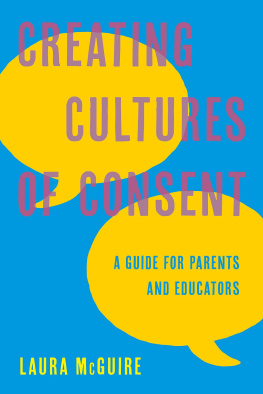
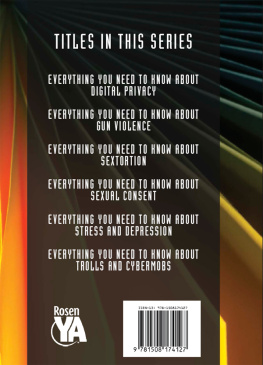
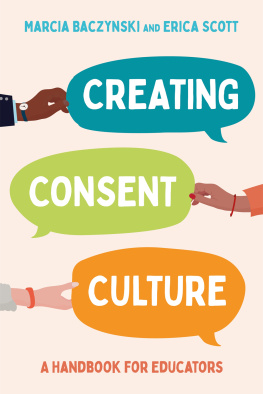
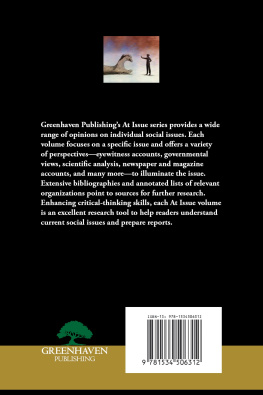

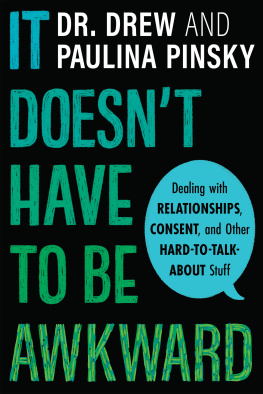
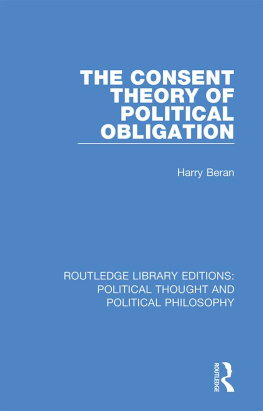
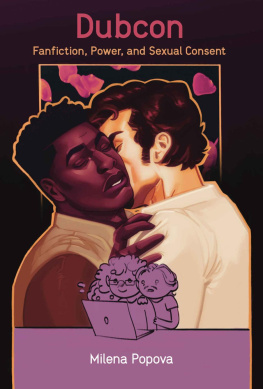
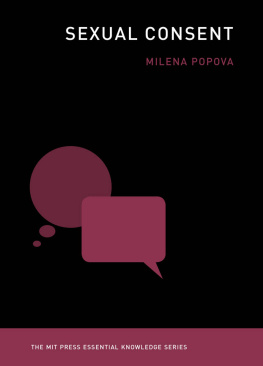
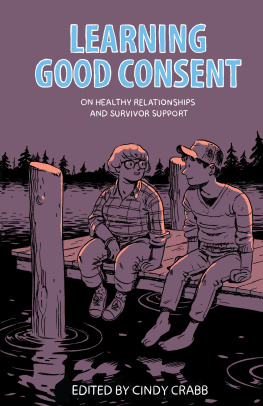
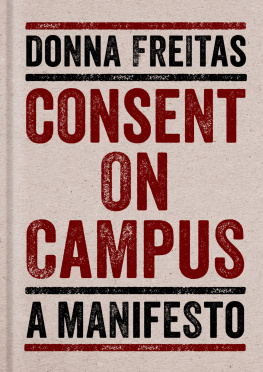

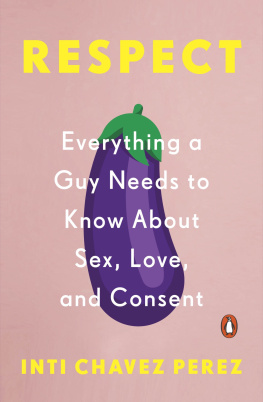

 The paper used in this publication meets the minimum requirements of American National Standard for Information SciencesPermanence of Paper for Printed Library Materials, ANSI/NISO Z39.48-1992.
The paper used in this publication meets the minimum requirements of American National Standard for Information SciencesPermanence of Paper for Printed Library Materials, ANSI/NISO Z39.48-1992.